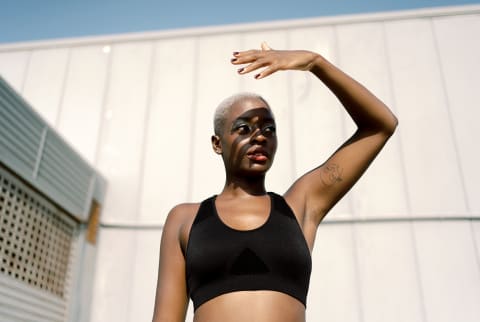New Research Says Exercising Without Enough Sleep Diminishes Workout Benefits


We all know how important working out is for the benefits of strength, mobility, metabolic health, and more. Exercising regularly can even support brain health as you age—but according to new research published in the Lancet Healthy Longevity1, there's a sneaky lifestyle factor that could be thwarting the cognitive benefits of your workout. Here's what they found.
Advertisement
Studying the impact of physical activity when you're not getting enough sleep
For this study, researchers wanted to assess the cognitive benefits of working out as they relate to aging and sleep habits and namely, how much sleep a person gets. To do so, they used data collected over 10 years from the English Longitudinal Study of Aging (ELSA), looking at factors like sleep duration, amount of physical activity, and cognitive function tests.
And as it turns out, based on their findings, there is a significant link between cognitive decline and working out on inadequate sleep.
For instance, study participants who were relatively more active but regularly slept less than six hours a night had faster cognitive decline over the course of the study. By the end of the 10 years, in fact, their cognitive function was no better than the participants who were less active.
On the flip side, the participants who were more physically active and getting six to eight hours of sleep a night had better cognitive functioning overall.
As lead author of the study Mikaela Bloomberg, Ph.D., explains in a news release, "Our study suggests that getting sufficient sleep may be required for us to get the full cognitive benefits of physical activity. It shows how important it is to consider sleep and physical activity together when thinking about cognitive health."
Advertisement
What to do about it
The findings of this study are not only another good reason to prioritize getting quality sleep but further, highlight the importance of taking a well-rounded approach to cognitive health and longevity, which includes working out and getting enough sleep.
To that end, whether you have a super-active lifestyle or just want to support your cognition, it's never a bad idea to up your sleep hygiene.
From going to bed and waking up at the same time every day to getting natural light in the morning and limiting caffeine before bed, there are plenty of ways to get more sleep every night.
It's also worthwhile to take a quality sleep-supporting supplement with ingredients that are research-backed to help you sleep deeper, like magnesium and pharmaGABA. (Here are nine of our favorites—all vetted by a nutrition scientist.)
For more tips on how to achieve the sleep of your dreams, be sure to check out our guide to sleeping through the night.
The takeaway
Sleep and brain health go hand in hand, so it's no surprise that working out when you're sleep deprived could have some undesirable effects. While some contributing factors to cognitive decline are hard to control, the good news is, getting enough sleep is one thing we can all put more effort into.
Advertisement

Sarah Regan is a Spirituality & Relationships Editor, a registered yoga instructor, and an avid astrologer and tarot reader. She received her bachelor's in broadcasting and mass communication from State University of New York at Oswego, and lives in Buffalo, New York.

